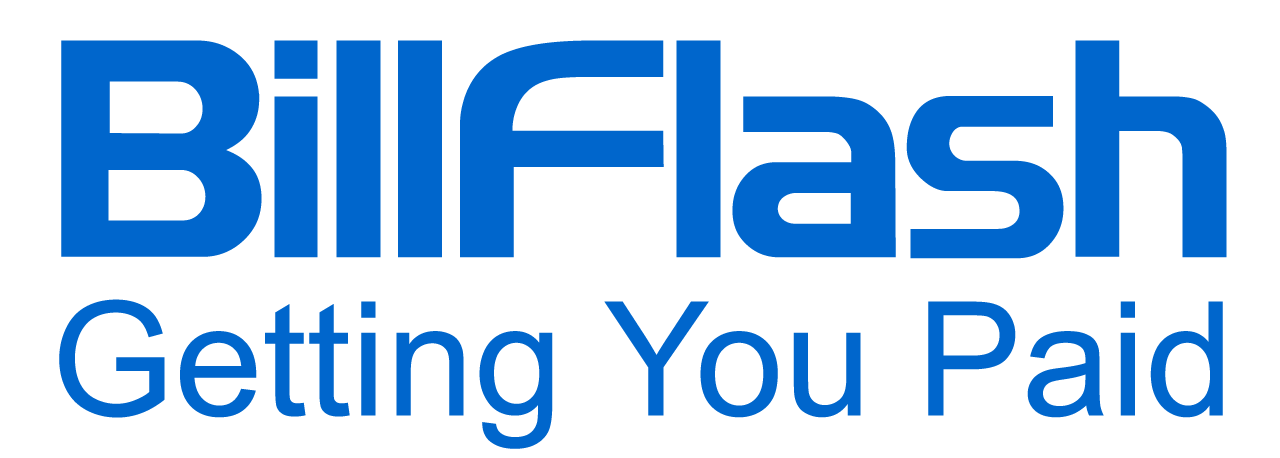Explore the crucial role of payment providers in the healthcare industry with this comprehensive overview.
In today's healthcare landscape, payment providers play a crucial role in ensuring the smooth and efficient flow of financial transactions. These intermediaries between healthcare institutions, patients, and insurance companies have emerged as essential entities that streamline the payment process. With their expertise and technology-driven solutions, payment providers have revolutionized the way healthcare services are funded and accessed.
Understanding Payment Providers in Healthcare

Payment providers, also known as healthcare financial intermediaries, are organizations that facilitate the transfer of funds between patients, healthcare providers, and insurers. They serve as a bridge, connecting the various stakeholders involved in the healthcare payment ecosystem.
When it comes to the complex world of healthcare payments, payment providers play a crucial role in ensuring that financial transactions related to medical services are processed and managed efficiently. They handle claims submissions, adjudication, billing, and payment reconciliation, working tirelessly behind the scenes to ensure that funds reach the appropriate parties.
But they do more than just facilitate transactions. They offer a range of additional services that simplify the payment process and make healthcare more accessible and transparent for patients. One such service is insurance verification, where payment providers verify a patient's insurance coverage to ensure that they are eligible for the services they seek. This helps patients avoid unexpected out-of-pocket expenses and ensures that healthcare providers receive proper reimbursement.
Another valuable service they provide is eligibility checks. These checks help patients understand their financial responsibilities before receiving medical services. By verifying a patient's coverage and benefits, payment providers can provide patients with accurate cost estimates, empowering them to make informed decisions about their healthcare.
Definition and Function
At its core, a payment provider in healthcare is responsible for processing and managing financial transactions related to medical services. They handle claims submissions, adjudication, billing, and payment reconciliation, ensuring that funds reach the appropriate parties.
Payment providers not only simplify the payment process but also offer additional services such as insurance verification, eligibility checks, and patient cost estimation. By leveraging their expertise, they help patients navigate the complex financial aspects of healthcare, making it more accessible and transparent.
Imagine a patient who needs a medical procedure. Without a payment provider, the patient would have to navigate the confusing world of medical billing on their own. They would have to submit claims to their insurance company, wait for adjudication, and then deal with the billing and payment reconciliation process. This can be overwhelming, especially for patients who are already dealing with health issues.
Payment providers step in to alleviate this burden. They have the knowledge and experience to handle the intricacies of medical billing and payment processing. They understand the complexities of insurance policies and can navigate the maze of codes and regulations to ensure that claims are processed accurately and efficiently.
Furthermore, they have sophisticated systems in place to track and manage payments. They can reconcile payments received from insurers with the services provided by healthcare providers, ensuring that all parties are properly compensated. This level of financial management is crucial for the sustainability of the healthcare system, as it helps maintain a healthy cash flow for healthcare providers.
Different Types
There are various types of payment providers in the healthcare industry, each specializing in different aspects of the payment workflow. Some focus on medical billing and revenue cycle management, while others offer advanced technological solutions to enhance payment efficiency.
Medical billing companies are one type of payment provider, offering services that encompass claims processing, coding, and billing. They work closely with healthcare providers to ensure accurate and timely reimbursement for services rendered. These companies have extensive knowledge of medical coding and billing guidelines, allowing them to maximize reimbursements for healthcare providers while minimizing claim denials and rejections.
On the other hand, technology-driven payment providers have emerged as key players in the healthcare industry. These organizations leverage innovation and automation to streamline payment workflows, reduce administrative burdens, and improve revenue cycle management. Their solutions integrate with electronic health records (EHR) systems, enabling seamless data exchange and facilitating faster reimbursements.
For example, some offer advanced software platforms that automate the claims submission process. These platforms can automatically generate and submit claims to insurance companies, reducing the time and effort required by healthcare providers. They can also track the status of claims in real-time, allowing healthcare providers to identify and address any issues promptly.
In addition to claims processing, technology-driven payment providers also offer tools for patient engagement and self-service. These tools empower patients to manage their healthcare payments online, view their billing statements, and make payments conveniently from their own devices. This not only improves patient satisfaction but also reduces administrative costs for healthcare providers.
Overall, they play a vital role in ensuring the smooth flow of financial transactions between patients, healthcare providers, and insurers. They simplify the payment process, offer additional services to enhance transparency and accessibility, and leverage technology to improve efficiency. Without payment providers, the healthcare payment ecosystem would be much more complex and challenging to navigate for all parties involved.
The Importance of Payment Providers in Healthcare
Payment providers play a crucial role in ensuring the smooth operation of healthcare institutions and the overall patient experience. Their impact can be seen in two significant areas.
Streamlining Financial Transactions
One of the primary advantages of payment providers is their ability to streamline financial transactions in the healthcare industry. By managing billing, claims, and reimbursement processes, they minimize administrative burdens for healthcare providers, allowing them to focus on delivering quality care.
They also employ advanced technologies, such as automated claims processing and electronic funds transfer, to accelerate payment cycles. This not only improves cash flow for healthcare providers but also reduces the time patients must wait for claims to be processed and payments to be made.
Facilitating Patient Access to Care
Another crucial role of payment providers is to facilitate patient access to care. Many patients struggle with the financial aspect of healthcare, including understanding insurance coverage, estimating costs, and managing medical bills. They address these challenges by offering tools and resources to empower patients in making informed healthcare financial decisions.
Through online portals and mobile applications, patients can easily access their billing information, view payment options, and even set up payment plans if needed. This level of transparency and convenience empowers patients to take control of their healthcare expenses, promoting better financial outcomes and overall satisfaction.
The Relationship Between Payment Providers and Healthcare Institutions

The collaboration between payment providers and healthcare institutions goes beyond financial transactions. These partnerships have wide-ranging implications for healthcare delivery and the overall financing of patient care.
Collaborative Approaches to Healthcare Financing
Payment providers and healthcare institutions work together to develop innovative financing models that benefit both parties. By analyzing claims data and payment trends, they can offer insights to healthcare institutions, helping them optimize their revenue cycle management.
Furthermore, payment providers collaborate with healthcare institutions to develop value-based payment models. These models align financial incentives with positive patient outcomes, shifting the focus from fee-for-service to a more holistic and patient-centered approach to care.
The Impact on Healthcare Delivery
The influence of payment providers extends beyond financial matters, shaping the way healthcare is delivered. As healthcare institutions become more financially accountable, they support initiatives aimed at improving care quality, patient satisfaction, and population health outcomes.
Payment providers also drive innovation in healthcare by leveraging data analytics and artificial intelligence. By analyzing vast amounts of payment and claims data, they identify trends, predict future healthcare needs, and assist in the development of more efficient care delivery models.
Challenges Faced in Healthcare
While payment providers have brought about significant improvements, they also face challenges in an ever-evolving healthcare environment.
Regulatory and Compliance Issues
The healthcare industry is renowned for its complex regulatory landscape. Payment providers must navigate stringent privacy and security regulations while ensuring compliance with insurance guidelines and government programs.
Keeping up with changing regulations requires constant investment in resources and technology to meet the demands of an evolving industry. Failure to comply with these regulations can result in significant penalties and reputational damage.
Technological Challenges and Innovations
As technology continues to advance, payment providers must stay ahead of the curve to remain competitive. Rapid changes in digital payment solutions, electronic health records, and data analytics require payment providers to adapt their systems and processes continually.
Payment providers must also focus on cybersecurity and data protection, as healthcare data is highly sensitive and subject to potential breaches. Investing in robust security measures is essential to maintaining patient trust and safeguarding the integrity of financial transactions.
The Future of Payment Providers in Healthcare
The future of healthcare payment providers is poised for further evolution as the industry embraces digital transformation and emerging trends.
Emerging Trends and Predictions
Technology will continue to play a prominent role in shaping the payment provider landscape. Increasing adoption of telehealth, mobile health applications, and wearables will create new opportunities for payment providers to develop innovative payment models.
Moreover, the rise of value-based care and alternative payment models will drive payment providers to develop outcome-based reimbursement systems that incentivize positive patient outcomes rather than just volume of services provided.
The Role of Digital Transformation in Payment Provision
Digital transformation will revolutionize payment provision in healthcare, offering seamless and user-friendly experiences for both patients and healthcare providers. Mobile payment options, secure data exchange, and real-time claims processing will become the norm, improving efficiency and patient satisfaction.
Furthermore, the integration of artificial intelligence and machine learning will enable payment providers to analyze vast amounts of healthcare data, leading to improved predictive analytics and fraud detection. This will result in better financial outcomes for healthcare institutions and increased protection against fraudulent activities.
Conclusion

In conclusion, payment providers are central to the efficient functioning of the healthcare payment ecosystem. Their ability to streamline financial transactions, facilitate patient access to care, and collaborate with healthcare institutions is invaluable. Despite facing challenges related to regulations and technology, payment providers continue to innovate and adapt to meet the evolving needs of the healthcare industry. As the landscape advances, payment providers will remain at the forefront, driving digital transformation and shaping the future of healthcare financing.
Going Forward with BillFlash
With BillFlash, practices can go further by optimizing their revenue cycle, efficiently collecting past-due A/R, and providing patients with a convenient and secure payment experience. With a user-friendly interface and industry experts available for all your billing, payments, and collections needs, BillFlash is the perfect solution for small practices.

